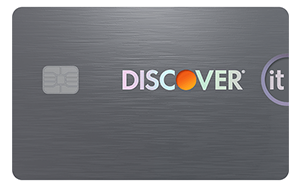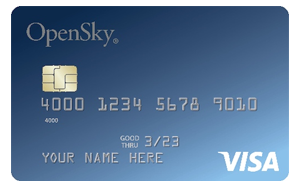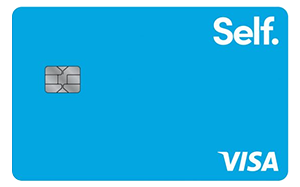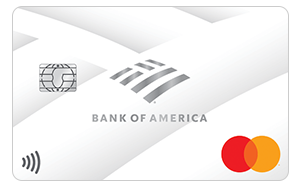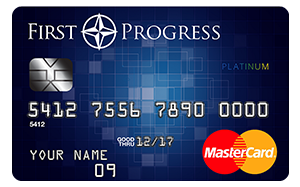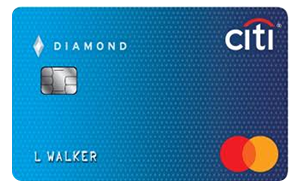Making credit card and loan payments helps you build credit, so naturally you may be wondering if the same rule applies to phone bills. Unfortunately, cell phone bills don’t contribute to your credit score—at least by default.
Thankfully, it’s possible to build credit by paying your phone bills by adjusting how you pay just a little bit. Read to learn how to do this.
Table of Contents
Why you won’t automatically build credit from paying phone bills
As a rule, your payments on your phone bills won’t affect your credit score. This is because cell phone providers don’t typically report your payments to the credit bureaus, which means they don’t show up on your credit reports.
The main credit scoring models only calculate your credit scores based on the information in your credit reports. This in turn means that your phone payments can’t affect your score.
How phone service can hurt your credit
Even though your regular payments to your phone service provider don’t benefit your credit, there are a couple of ways that phone service can actually damage your credit.
Specifically, your credit will take a hit when you:
1. Make late payments
Although most phone service providers don’t report your positive account activity to the credit bureaus, some report late payments and/or charge-offs. 1 2
Charge-offs occur when you go long enough without paying your phone bill. Your account will go to collections, and your debt may be sold to a debt buyer, in which case the company that now owns your debt will be the one reporting your collection account to the credit reporting agencies.
Falling behind on payments can seriously hurt your credit score, and like most derogatory marks, charge-offs and collections can stay on your report for 7 years. 3 For this reason, it’s crucial to notify your service provider as soon as you start having trouble paying your phone bills so that they can help you switch to a new phone plan or cancel your contract before your account becomes delinquent.
2. Apply for a new phone plan
Like other credit applications, applications for cell phone services usually require a credit check (especially if you’re switching to a new carrier). This is because cellphone plans are technically considered a form of “open credit,” one of the three types of credit, since you’re receiving services upfront and paying for them later.
Credit checks for cellphone service generally trigger a hard inquiry, which will temporarily lower your credit score. 4 However, the damage is minor and won’t last more than a few months.
Note that you generally need credit to get a phone plan, but if you have an insufficient credit history or a bad credit score, you can instead apply for a phone plan with no credit check, such as a prepaid phone plan. This also has the advantage of not damaging your score even further.
How to build credit by paying your phone bills
The only way your phone bill payments can improve your credit score is if they’re added to your credit reports. Thankfully, there are a few different ways to get bill payments added to your credit history.
Use a phone bill-reporting service
You can “self-report” your phone bill payments to the credit bureaus by signing up for a third-party bill-reporting service, such as Experian Boost.
Experian Boost is a free credit-builder app that allows you to add your phone, cable, internet, and other utility bills to your Experian credit report. You can add up to 24 months of payment history to your account to instantly boost your score, and you can remove any recorded payments at any time. 5
To use Experian Boost, you’ll first need to connect your bank account. With your permission, qualifying bill payments will then be automatically added to your credit file.
Boost your credit for FREE with the bills you're already paying

Boost your credit for FREE with the bills you're already paying
- Experian Credit Report and FICO® Score updated every 30 days on sign in
- Instantly increase your credit scores for FREE with Experian Boost™
- Daily Experian credit monitoring and alerts
The only real downside of Experian Boost is that it will only benefit your credit score with Experian. Your Equifax and TransUnion credit scores won’t be affected. There are other services that you can use to add your bill payments to all three credit reports, but unlike Experian Boost, most of them cost money.
Pay your phone bills with a credit card
Even though your phone provider won’t report your payments to the credit bureaus, your credit card company will.
Paying your phone bills with a credit card is an indirect way of having your payments added to your credit reports. As long as you pay your credit card bills on time each month, your card payments will improve your credit score by contributing to your payment history.
If you use a rewards card, you can even earn rewards and benefits for your cell phone payments.
However, to avoid accidentally hurting your credit, make sure to use under 30% of the credit limit on your credit card. This will help you maintain a low credit utilization rate (the amount of your credit that you’re using, also known as your debt-to-credit ratio), which is important for establishing a good credit score.
Phone bill payments are considered alternative credit data
Phone bill payments are considered alternative data, meaning that although they’re not usually included in credit reports, they can still be used by lenders to assess your creditworthiness. Other examples of alternative credit data include rent, cable, and internet payments.
Other ways to build credit without using your phone payments
There are many ways to build credit other than having your phone bill payments added to your credit report.
You can try the following four approaches alone, or together.
1. Finance a phone
If you’re looking for other ways to use a phone to build credit, then an alternative to using your monthly service bills is financing a new phone. This is a good option if you were already considering replacing your current phone.
You can only build credit by financing a new phone if the company you purchased the phone from (such as the phone manufacturer or a third-party retailer) reports your account details and payment activity to at least one of the three credit bureaus.
If you get a payment plan directly from a cell phone manufacturer, such as Apple or Samsung, they’ll probably report your payments. On the other hand, service providers, such as Verizon, generally won’t.
2. Self-report your rent payments
If you want to build credit with regular payments, getting your rent added onto your credit report is a good option.
Although you can’t report your rent payments to the credit bureaus yourself, you can ask your landlord to report them or sign up for a third-party rent-reporting service, such as Rental Kharma, PayYourRent, or Rent Reporters. These services work in a similar way to the utiliy-reporting services we mentioned above.
Some companies can add past rent payments to your credit reports, allowing you to build years of credit instantly. Each on-time rent payment you make will strengthen your credit history and improve your score.
3. Become an authorized user
Another way to build credit quickly without actually applying for a new line of credit is to become an authorized user on a family member’s or close friend’s credit card account. Becoming an authorized user improves your credit score as long as the primary cardholder manages their account responsibly.
Make sure that the credit card company reports authorized users to the credit bureaus, otherwise this approach won’t work. The primary cardholder’s payment history should be added to your credit reports, instantly thickening your credit file. You’ll also have access to the same line of credit as they do.
4. Use credit-building tools
If your reason for trying to build credit through phone bill payments was to establish a credit history or credit score so that you can apply for loans or credit cards, then consider starting with some beginner credit-building tools, which allow you to build credit when you have none.
There are two types of credit accounts specifically designed for people with little or no credit:
Secured credit cards
A secured credit card differs from a traditional unsecured credit card in that it requires a refundable deposit (equal to the card’s credit limit), which the credit card company can keep if you stop making payments. These cards are easier to get because they involve less risk for your creditor.
| Credit Card | Best For | Credit Score | Annual Fee | Welcome Bonus | |
|---|---|---|---|---|---|
| Secured Overall | 300–669 | $0 | Cashback Match | ||
| No Credit Check | 300–669 | $35 | |||
| Beginners | 300–669 | $25 | |||
| No Annual Fee | 300–669 | $0 | |||
| Bad Credit | 300–669 | $49 | |||
| Rebuilding Credit | 300–669 | $0 | |||
Credit-builder loans
Unlike traditional installment loans, credit-builder loans don’t involve borrowing money upfront. Instead, you only get access to funds after you’ve paid off the full loan amount. Like the case with other credit accounts, you’ll build credit with each on-time payment you make.
Whether you’re starting from scratch or trying to rebuild your credit after your score’s taken a major hit, the most important thing you can do is make sure that you always pay your bills on time for any credit accounts you have, educate yourself on how credit works, and monitor your credit regularly.
Takeaway: Paying your phone bills can help you build credit, but only if your payments are reported to the credit bureaus.
- The payments you make toward phone bills are not automatically added to your credit reports, and they don’t automatically contribute to your credit score.
- If you stop paying your phone bills, your provider may send your account to collections. These collection accounts will show up on your credit reports and damage your score.
- The only way to build credit by paying your phone bills is to have your payments added to your credit reports.
- You can get credit for phone bills by self-reporting your payments using a third-party bill-reporting service or using a credit card to pay your phone bills.
- Other ways to build credit include financing a phone, reporting your rent payments, becoming an authorized user, or applying for a secured credit card or credit-builder loan.

